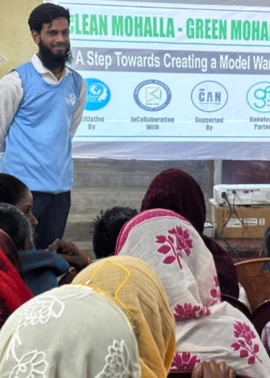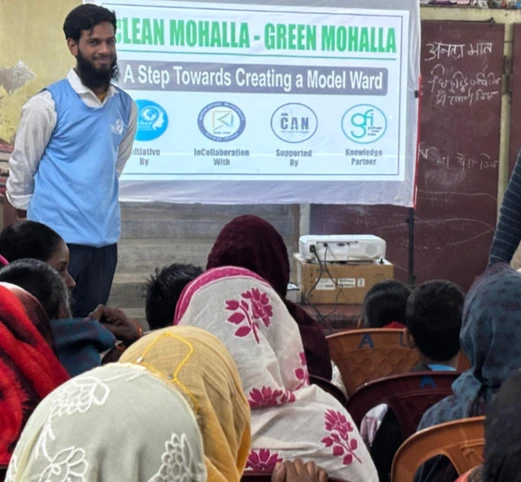Ajay is the Co-Founder of the India Clean Air Network (ICAN), an initiative under the Environment Conservation Society (ECS) that is working to address climate change and related social inequities. It does this by supporting initiatives for resilient cities, clean air, and clean energy access in rural communities. ICAN’s pilot project on effective waste management was carried out at the local level, and an advocacy campaign culminated in a government clean air action plan for cities that consistently fail to meet national air quality targets.
As a winner of the Lead2030 Challenge and participant in AstraZeneca’s Young Health Programme (YHP), Ajay set out to build a comprehensive programme to address the intersectional air pollution and health challenges faced by vulnerable communities through community engagement and youth mobilisation. With support from AstraZeneca, ICAN has improved the waste disposal practices of communities in the Kolkata Metropolitan Area. This has been a chronic challenge for the district, where the vast Dhapa landfill has caused frequent fires and a significant deterioration of air quality. Ajay’s approach concentrated on waste, mobility, and city cleanliness, which following his previous work at ECS he realised needed radical reform.
ICAN’s programmes specifically target schools and colleges, and vulnerable young people from low-income households or residing in urban slums. They provide beneficiaries with the knowledge and skills they need to address waste management and pollution challenges in their localities. ECS has secured important governmental support by signing a Memorandum of Understanding (MoU) with the Barrackpore Municipality, part of the Greater Kolkata Region, to increase the waste segregation and general waste management practices of the district.
With support via the YHP and funding from the Lead2030 prize, ICAN has trained 500 households in effective waste management practices and provided them with household waste collection services that enable them to put that training into practice. ICAN has also trained over 100 young people on waste segregation, composting, social mapping, and field-data collection via five-day workshops with on-ground immersion. Finally, ICAN has arranged events and festivals, promoting messages on sustainability, waste segregation, and eco-friendly lifestyles to reach an additional 5,000 people.
Project links
Contributor

